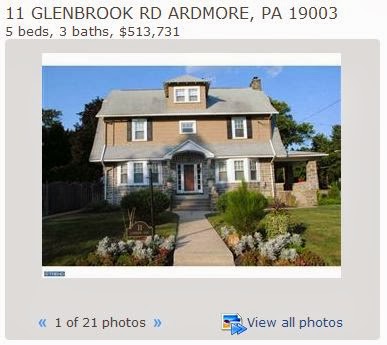Avoid these costly home loan pitfalls
A mortgage is the biggest debt most of us will ever carry, and a home is the most expensive purchase we will ever make.
That’s why it’s so important to avoid pitfalls like making a major job change right before your home loan closes or failing to anticipate long-term home ownership costs.
These mistakes and others can cause you to pay more than you need to, prevent your loan from closing or even lead to bankruptcy.
Don’t let the unfamiliarity and enormity of the situation scare you. People make smart mortgage choices every day. They get home loans with great interest rates, low fees, and predictable, fixed monthly payments and they make a budget ahead of time so they don’t get in over their heads.
Our guide will turn you into a savvy borrower so that owning your home will be a joy, not a burden, and will help you achieve long-term financial security.
Not getting a fixed-rate loan
With fixed-rate mortgages priced above record lows, you might be tempted to grab an adjustable-rate mortgage.
But unless you're planning to move within five to seven years, you'll be better off financially sticking with a fixed-rate loan.
Rates are still historically low, so if you take out a fixed-rate loan now, you may never have to worry about refinancing. An ARM might offer you a lower payment now, but it will eventually reset, most likely at a higher rate.
"There is a lot of risk if rates rise and you cannot get out of the ARM at the right time," says Phillip Christenson, a chartered financial analyst and owner of Phillip James Financial, a financial planning and investment management company in Plymouth, Minn.
You might not be able to refinance or afford the new payment once rates rise. Or the housing market could make it difficult to sell.
Our extensive database of current mortgage rates is a good place to start your search for a fixed-rate loan. It allows you to quickly and easily compare the lowest available rates and fees from dozens of lenders.
Ignoring the true costs of home ownership
The sale price you agree to pay for the home isn't the cost of owning the home.
First, look at the amortization schedule on your mortgage to see what the home will cost you over the life of the loan, says Realtor Lou Cardillo of Cardillo Real Estate in Yorktown Heights, N.Y. The amortization schedule shows the total amount of interest and principal you’ll pay.
It can be eye-opening to see that borrowing $250,000 for 30 years at 4.15% brings your total purchase to $437,493. Use our mortgage calculator to estimate your payments over the life of a loan.
Also learn about the property tax system in your city or town, Cardillo says, to see when taxes can increase and by how much. Property taxes can add thousands of dollars to the cost of your home each year.
You’ll additionally be responsible for homeowners insurance, possibly mortgage insurance, all the ongoing costs of furnishing and maintaining a home, and maybe some monthly bills you didn’t directly pay as a renter, like trash and water.
Letting the bank tell you what you can afford
Your lender is not a good judge of how much house you can afford. Banks are in the business of maximizing their earnings from interest, closing costs and the sale of mortgages to investors, not in making sure you don't overextend yourself.
If you rely on a bank to set your price range, you will most likely find yourself in over your head, says Jamie Pandolfo, senior mortgage consultant with Flat Branch Home Loans in St. Louis, Mo.
Banks will qualify you based on your gross (pretax) income, but they don't account for many monthly expenses such as insurance, utilities and child care when determining your maximum approval amount, she says.
These expenses take up much more of some borrowers’ budgets than others.
"When deciding to purchase, it’s best to start by creating a budget and determining a comfortable monthly payment," Pandolfo says.
As a general rule of thumb, you should not spend more than 28% of your gross income on housing. This includes principal, interest, taxes and insurance.
Not thinking about the future
The typical mortgage term is 15 or 30 years. And while most people sell or refinance before paying off their home loan, circumstances can radically change in even five to 10 years.
"The biggest mistake most buyers make is they only look at the 'now' of financing," says Realtor Lou Cardillo of Cardillo Real Estate in Yorktown Heights, N.Y. "This is a mistake because life changes rather quickly."
Job losses, relocation, death, marriage, babies and even divorce can dramatically change what you can afford.
Think about what might happen in your life during the next decade and what kind of monthly payment might be feasible under those conditions before you commit.
While your future plans might include moving up the career ladder, you shouldn’t count on a higher income.
Set yourself up to be comfortable in good times and in bad — not to barely get by and possibly lose your home.
Acting like the loan is final before closing
Just because a seller has accepted your offer and a lender has approved your mortgage doesn’t mean your home purchase is a done deal.
There are a number of behaviors to avoid before you close, says Richard Whitman, vice president of mortgage lending at Texas Trust Credit Union in north Texas.
Don’t quit your job; lenders want to see two years of consistent employment, he says, and they’ll verify it just before closing.
Don’t open new credit cards, take out new loans or use more of any existing credit lines. If you have more debt, you won’t be able to borrow as much.
You shouldn’t even make large purchases with cash, because lenders want to see that you have enough savings to keep paying your mortgage in an emergency.
And if you didn’t lock in your rate and interest rates go up, you might qualify for less than you need to buy the home.
Finally, don’t miss any deadlines for returning loan paperwork.
Ignoring APR
Some lenders advertise low interest rates but make up for them with high fees.
A big mistake consumers make is being swayed to choose a particular lender based on these abnormally low promotional rates, says broker Michael Mahon, the executive vice president of HER Realtors in Columbus, Ohio.
You need to compare annual percentage rates between mortgage offers to see which one really costs the least.
APR includes the lender’s fees and shows the loan’s true cost.
A $100,000, 30-year, fixed-rate loan with an interest rate of 3.85% where the lender charges 2 points, a 1% origination fee and $1,500 in other closing costs has a 4.215% APR.
The same $100,000 loan with an interest rate of 4.05%, no points, a 1% origination fee and $800 in other closing costs has a 4.199% APR.
While the first loan looks cheaper because of its lower interest rate, it not only costs more in the long run, it also requires you to bring more cash to the table.
Lenders are required to disclose APR on a Truth-in-Lending disclosure form. Read it.
Thinking you can carry two mortgages
No one wants to move twice. So if you’re moving from one house to another, you might be tempted to buy the new home before selling your current one.
This is a mistake, says certified financial planner Curtis W. Chambers, founder and managing member of Chambers Financial Group in Clearwater, Fla. An unsold home with a mortgage can mean carrying two loans.
"I see this happen all the time, and it can be a tremendous source of stress. It is usually easier to buy a home than to sell one," Chambers says.
Once you sell, you’ll have a 30- to 60-day closing period to find a new home and make a seamless transition, assuming both closings go smoothly.
If they don’t, or if you can’t find your new home that quickly, put all your nonessential belongings in storage and look for a month-to-month rental.
It will be a hassle, but it will eliminate the risk of carrying two mortgages and relieve the pressure to buy any new house instead of the right new house.
Putting little or no money down
If you’re putting little to nothing down — say, 3.5% with an FHA loan or 5% with a conventional loan — you’re looking at several potential problems.
"Such loans require private mortgage insurance and provide the homeowner little or no real equity in the property," says Bennie D. Waller, professor of finance and real estate at Longwood University in Farmville, Va.
PMI typically costs $25 to $100 per month per $100,000 borrowed. Conventional loans let you cancel PMI once you accumulate 20% equity, but FHA loans require mortgage insurance until the loan is paid in full.
Putting almost nothing down also makes it easy to end up underwater. If home values drop even slightly, you’ll be unable to move or refinance without bringing thousands of dollars to closing.
Instead of wasting money on mortgage insurance, save until you can make a 10% to 20% down payment on a conventional loan and avoid PMI or at least shorten its life.
You’ll also pay less interest over the life of your mortgage since you’re not borrowing as much.
Failing to get preapproved for a home loan
Educated borrowers look at their budgets and calculate how much they can afford to spend before they go house shopping.
But knowing what you can afford isn’t the same as knowing what the bank will lend you based on your income, debts, credit score and current lending conditions.
Often, consumers will go house shopping and find the perfect home before visiting a lender, says Richard Whitman, vice president of mortgage lending at Texas Trust Credit Union in north Texas. They don’t keep track of their credit and aren’t aware that it isn’t where it needs to be to qualify for a mortgage.
With no real idea of what a bank will lend you, you can’t possibly be looking at the right properties. You might be looking at better or worse homes in better or worse neighborhoods than you’ll actually be able to get a mortgage for.
Instead of playing make-believe and going window shopping, talk to at least three lenders and get preapproved. It’s free, and it enables you to make a serious offer.

























